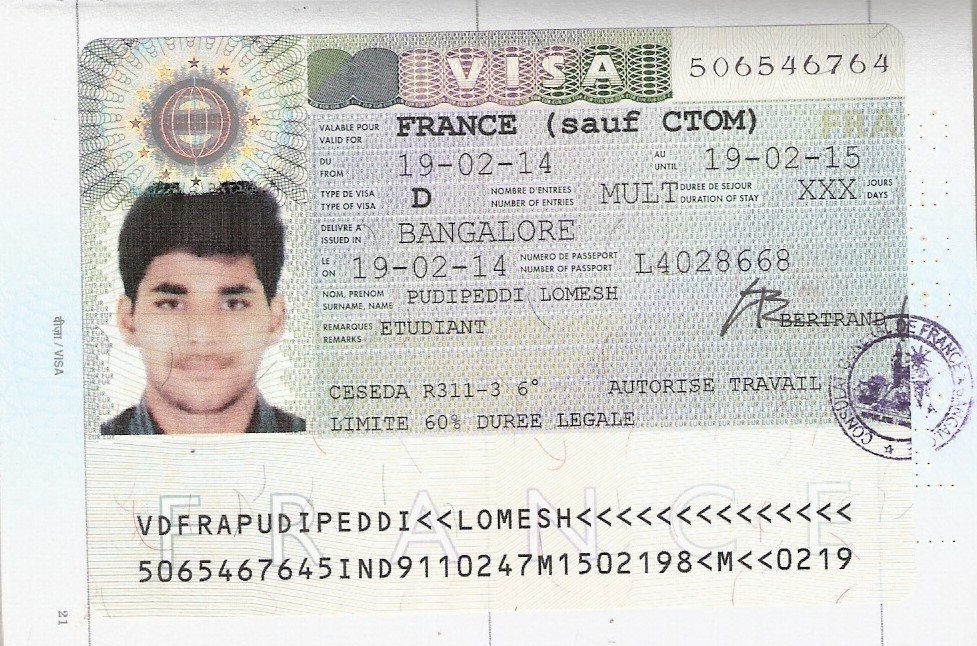
France is the most visited country in the world. Many people dream of staying there and look for ways of how to accomplish that. If you dream of moving to France, then you may have to deal with boring practicalities such as visas, residency cards, and health insurance. Here’s our guide to moving to France and ensuring that you can stay here. When looking at coming to France, there are two main things that are important–your nationality and what you intend to do here (work, study, retire, etc.) The rules on paperwork vary considerably depending on these factors. EU- OR SCHENGEN-ZONE PASSPORT HOLDERS
If you have the passport of any EU country, including Ireland, or a Schengen-Zone country then you are covered by EU Freedom of Movement and can move to France with minimal paperwork. This applies to dual nationals as long as they use their EU passport for all official formalities. France does not require EU citizens to register for residency after they have lived there for a certain period. If you’re moving long-term, however, you will need to register within the French healthcare system and file your taxes annually—even if you earned the money outside France.CITIZENS OF THE US, UK, NEW ZEALAND, AUSTRALIA, AND CANADA
If you don’t benefit from the EU Freedom of Movement, you will have to get a visa for longer stays in France. People from the above counties do, however, benefit from the 90-day rule, which means you can travel to France visa-free for up to 90 days in every 180. This may be sufficient for second-home owners or frequent visitors. If you want to stay longer than that, however, you must get a visa first, and for staying long term, a residency card. Visas must be applied for in your home country before you even move. And it’s here that your reason for moving becomes important, as it determines the type of visa that you will apply for. Here is an OVERVIEW OF FRENCH VISA TYPES
1. Working Visa
If you’re coming as an employee, your employer must sponsor your visa. 2. Entrepreneur Visa
If you intend to be self-employed or to freelance in France, you must apply for an entrepreneur visa, which requires proof of resources. Depending on your type of work, you may also qualify for a Passeport Talent , which gives extra benefits in terms of how long it lasts and whether you can bring family with you. READ ALSO Talent passport: The little-known visa that could make moving to France a lot easier. You’ll find it in our Guide to French Visas and How to Stay in France. 3. Student Visa
Student visas are straightforward to apply for, but you will need a confirmed place at a French university or further education center in order to apply.4. Visitor Visa
If you’re retired or don’t intend to work in France, you will probably want a visitor visa. This visa type requires you to declare that you will not work in France, so it’s not suitable for semi-retired people. You will have to prove that you can support yourself financially during your stay in France. You have to also bring a full health insurance coverage for your first year in France. 5. Spouse Visa
If you are married or are in a registered civil partnership with a French or other EU national, you become eligible for a spouse visa that has less requirements attached. CITIZENS FROM OTHER COUNTRIES
Not all non-EU countries benefit from the 90-days of visa-free travel. France applies different rules to different countries. If you are coming from certain destinations, you will need a visa to enter France for any length of stay. VALID VISA HOLDERS
Once you’ve got the visa and made the move to France you might be tempted to think that you’re finished with French bureaucracy. Unfortunately, this is not the case. At some point you will need to register for the residency card known as the carte de séjour and when you register depends on your visa type – some demand that you register within three months of arrival, so you need to be aware of this and make sure that you don’t miss the deadline. When registering you may also have to undergo a medical exam and commit to signing up to French classes if your language skills are a little rusty. If you intend to stay you will also need to register within the French healthcare system and remember that all residents of France need to file an annual tax declaration, even if all your income comes from outside France. BECOMING A FRENCH CITIZEN
If you intend to make France your home, you may wish to apply for French citizenship, which will remove all annoying requirements for visas and residency cards if your application is successful, as well as giving you the right to vote in French presidential elections (or even to become a candidate in the presidential elections, if you want). If you have French parents or a French spouse you can get citizenship without having to be resident in France, but if you don’t have any family members, you will be looking at gaining citizenship through residency. France is relatively generous in granting citizenship through residency, and you can apply after being a full-time resident of France for five years (or two years if you graduated from a French university or higher education establishment). You do require B2 level French, however, plus a lot of paperwork, and you will need to do some preparing for the interview in which you are tested on your knowledge of French history, culture, and values. This is just an overview of the various requirements. You can find a lot more information in our Guide to French Visas, Residency, and Moving to France. Request your PDF copy here.
If you have the passport of any EU country, including Ireland, or a Schengen-Zone country then you are covered by EU Freedom of Movement and can move to France with minimal paperwork. This applies to dual nationals as long as they use their EU passport for all official formalities. France does not require EU citizens to register for residency after they have lived there for a certain period. If you’re moving long-term, however, you will need to register within the French healthcare system and file your taxes annually—even if you earned the money outside France.CITIZENS OF THE US, UK, NEW ZEALAND, AUSTRALIA, AND CANADA
If you don’t benefit from the EU Freedom of Movement, you will have to get a visa for longer stays in France. People from the above counties do, however, benefit from the 90-day rule, which means you can travel to France visa-free for up to 90 days in every 180. This may be sufficient for second-home owners or frequent visitors. If you want to stay longer than that, however, you must get a visa first, and for staying long term, a residency card. Visas must be applied for in your home country before you even move. And it’s here that your reason for moving becomes important, as it determines the type of visa that you will apply for. Here is an OVERVIEW OF FRENCH VISA TYPES
1. Working Visa
If you’re coming as an employee, your employer must sponsor your visa. 2. Entrepreneur Visa
If you intend to be self-employed or to freelance in France, you must apply for an entrepreneur visa, which requires proof of resources. Depending on your type of work, you may also qualify for a Passeport Talent , which gives extra benefits in terms of how long it lasts and whether you can bring family with you. READ ALSO Talent passport: The little-known visa that could make moving to France a lot easier. You’ll find it in our Guide to French Visas and How to Stay in France. 3. Student Visa
Student visas are straightforward to apply for, but you will need a confirmed place at a French university or further education center in order to apply.4. Visitor Visa
If you’re retired or don’t intend to work in France, you will probably want a visitor visa. This visa type requires you to declare that you will not work in France, so it’s not suitable for semi-retired people. You will have to prove that you can support yourself financially during your stay in France. You have to also bring a full health insurance coverage for your first year in France. 5. Spouse Visa
If you are married or are in a registered civil partnership with a French or other EU national, you become eligible for a spouse visa that has less requirements attached. CITIZENS FROM OTHER COUNTRIES
Not all non-EU countries benefit from the 90-days of visa-free travel. France applies different rules to different countries. If you are coming from certain destinations, you will need a visa to enter France for any length of stay. VALID VISA HOLDERS
Once you’ve got the visa and made the move to France you might be tempted to think that you’re finished with French bureaucracy. Unfortunately, this is not the case. At some point you will need to register for the residency card known as the carte de séjour and when you register depends on your visa type – some demand that you register within three months of arrival, so you need to be aware of this and make sure that you don’t miss the deadline. When registering you may also have to undergo a medical exam and commit to signing up to French classes if your language skills are a little rusty. If you intend to stay you will also need to register within the French healthcare system and remember that all residents of France need to file an annual tax declaration, even if all your income comes from outside France. BECOMING A FRENCH CITIZEN
If you intend to make France your home, you may wish to apply for French citizenship, which will remove all annoying requirements for visas and residency cards if your application is successful, as well as giving you the right to vote in French presidential elections (or even to become a candidate in the presidential elections, if you want). If you have French parents or a French spouse you can get citizenship without having to be resident in France, but if you don’t have any family members, you will be looking at gaining citizenship through residency. France is relatively generous in granting citizenship through residency, and you can apply after being a full-time resident of France for five years (or two years if you graduated from a French university or higher education establishment). You do require B2 level French, however, plus a lot of paperwork, and you will need to do some preparing for the interview in which you are tested on your knowledge of French history, culture, and values. This is just an overview of the various requirements. You can find a lot more information in our Guide to French Visas, Residency, and Moving to France. Request your PDF copy here.

